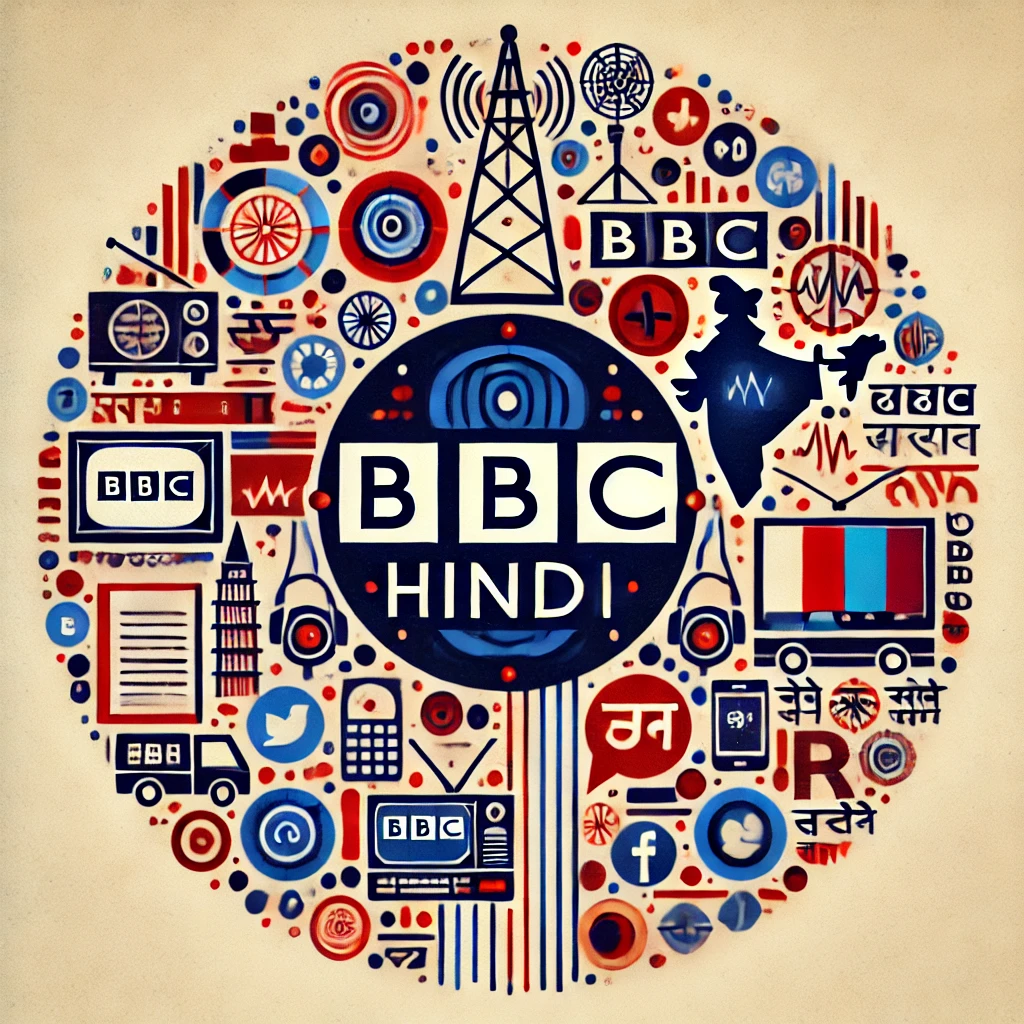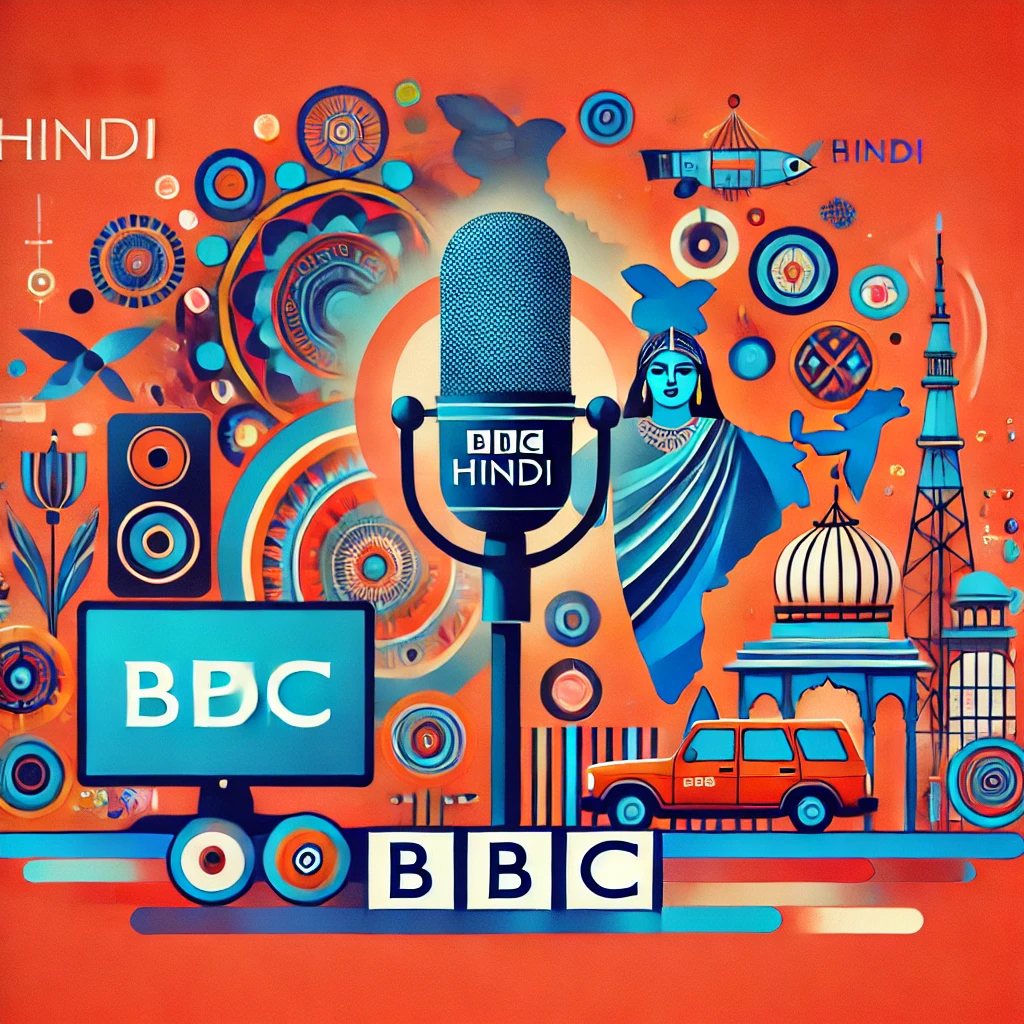
Introduction
In the rapidly changing landscape of digital media, BBC Hindi stands out as a reliable, comprehensive news source for Hindi-speaking audiences across India and beyond. As one of the leading branches of the BBC’s multilingual services, BBC Hindi brings global perspectives to local issues, making international news accessible to millions of Hindi speakers. In this post, we’ll delve into the journey of BBC Hindi, its unique role in media, the challenges it faces, and how it continues to maintain credibility and relevance in a dynamic media environment.
A Brief History of BBC Hindi
Launched in May 1940 as a radio service, BBC Hindi was initially established to counteract propaganda during World War II. Over the decades, it has evolved, from shortwave broadcasts to a full-fledged digital platform, expanding its reach via websites, social media, and mobile apps. As one of the BBC’s most popular language services, BBC Hindi has transformed from radio-only to digital news and multimedia journalism, covering everything from politics and economics to technology and lifestyle.
BBC Hindi’s Unique Role in the Indian Media Landscape

India’s media landscape is vast and diverse, with numerous local and national outlets. Yet, BBC Hindi occupies a unique space, providing a balanced, global perspective that many domestic channels lack. Unlike Indian media, which may be influenced by corporate interests, political pressures, or sensationalism, BBC Hindi adheres to the BBC’s strict editorial standards. It offers a neutral stance, which appeals to audiences looking for unbiased news.
Moreover, BBC Hindi brings global issues closer to home. It covers international news and connects it to local Indian contexts, whether it’s climate change, economic shifts, or international relations. The team at BBC Hindi frequently includes region-specific stories, incorporating local perspectives and voices, thus enriching the content and making it more relatable to its audience.
Engaging a Digital-First Audience
In recent years, BBC Hindi has focused on reaching a digital-savvy audience. Recognizing the shift towards online media consumption, BBC Hindi has invested in social media platforms like Facebook, Twitter, YouTube, and Instagram. These platforms allow the outlet to share breaking news, live updates, and multimedia content directly with users, especially the younger demographic who prefer mobile-friendly news formats.
BBC Hindi’s website is also a rich resource, featuring multimedia content such as video reports, photo galleries, podcasts, and text articles. Interactive features, including comment sections and polls, further engage readers. The platform often covers stories on topics like technology, health, and personal finance – areas of interest to young professionals and students.
Another key aspect of their digital approach is the BBC Hindi mobile app, which offers a streamlined way to access news anytime, anywhere. With notifications, customizable settings, and an easy-to-navigate interface, the app brings real-time updates and stories to the fingertips of users.
Maintaining Credibility in an Era of Misinformation
One of the biggest challenges in today’s media is the prevalence of misinformation and fake news. BBC Hindi, as part of the globally respected BBC network, is committed to fact-checking and presenting verified information. BBC Hindi has a dedicated team that rigorously checks facts and sources to ensure the authenticity of its news. This commitment to journalistic integrity has built a trust base among its readers who rely on BBC Hindi for accurate information.
In fact, BBC Hindi also runs special fact-checking series and sections to counteract misinformation in India, especially around sensitive issues like elections, health, and social conflicts. In doing so, BBC Hindi has positioned itself as a credible news source in an environment where fake news often spreads rapidly on social media and messaging apps.
Addressing Local Concerns and Promoting Diversity
BBC Hindi emphasizes covering issues that affect diverse communities across India, from rural to urban areas. By giving a voice to underrepresented regions and groups, it sheds light on important but often overlooked stories, such as social justice, human rights, and environmental issues. BBC Hindi journalists frequently travel to remote areas to capture stories directly from the people, ensuring authentic representation and diversity in their reporting.
BBC Hindi also provides a platform for Hindi-speaking diaspora communities, connecting them with the latest news from home and offering stories on cultural identity and integration. This commitment to inclusivity and cultural sensitivity makes BBC Hindi resonate with a wide audience.
Challenges Ahead: Competing with Local Media and Expanding Reach
Despite its advantages, BBC Hindi faces challenges, especially in competing with the vast network of local media channels that offer news in Hindi. Many Indian news outlets have regional language editions and 24-hour news channels, which can sometimes outpace BBC Hindi in terms of immediacy and hyper-local content.
Moreover, expanding reach in rural areas with limited internet access remains a hurdle. While the digital shift has increased accessibility, millions of potential readers and listeners in rural India still rely on traditional media, a challenge for a digital-focused BBC Hindi.
Conclusion: The Way Forward for BBC Hindi
BBC Hindi has successfully adapted to the changing media environment, remaining a trusted source of news for Hindi-speaking audiences. Its commitment to unbiased reporting, cultural diversity, and digital engagement allows it to bridge local and global perspectives in an accessible way. Moving forward, BBC Hindi’s focus on fact-checking, adapting to digital innovations, and expanding its reach will be crucial in maintaining its place in India’s competitive media landscape. For those seeking credible and well-rounded news, BBC Hindi stands as a reliable and respected choice.





